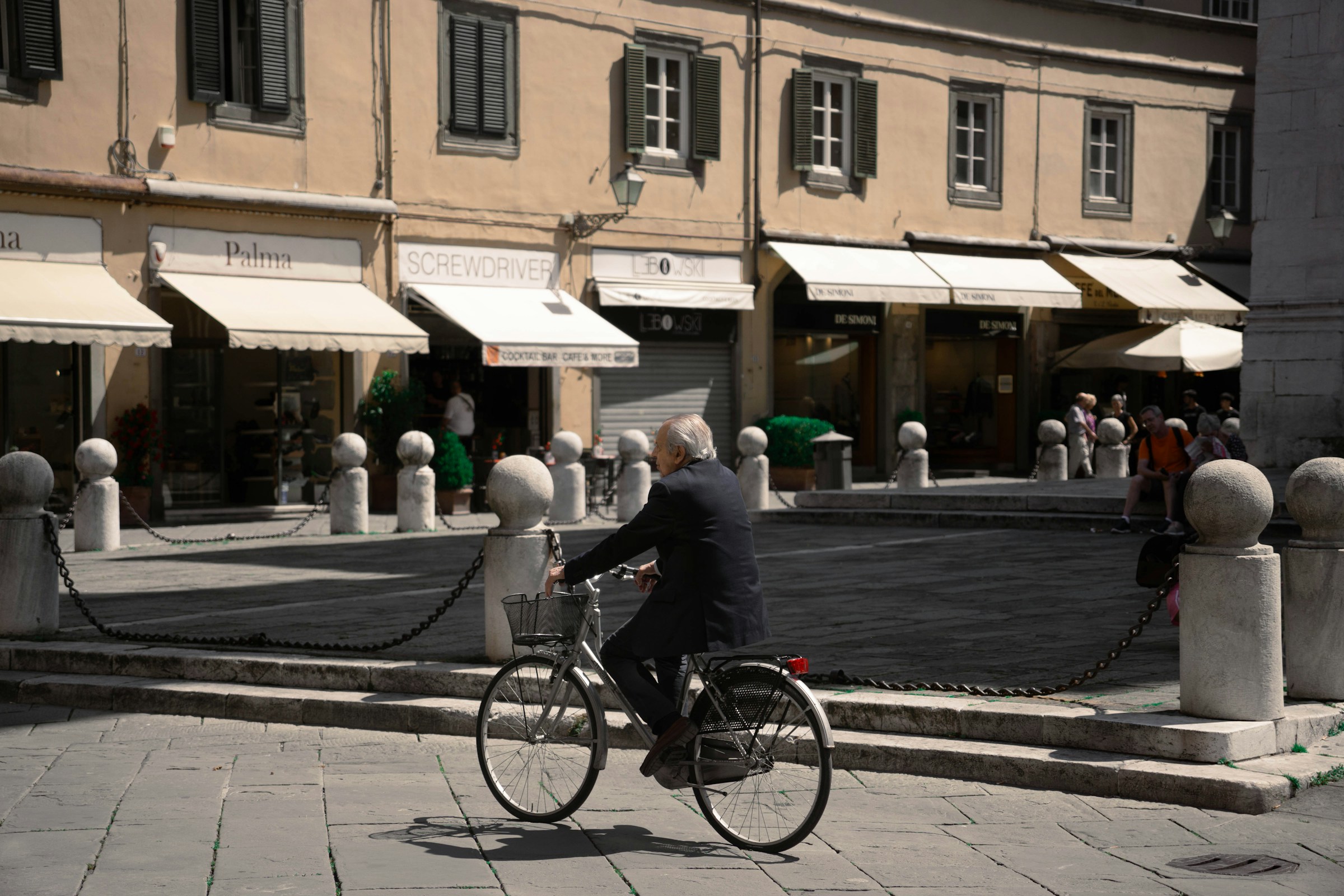Retiring abroad often begins as a small fantasy. Maybe it appears while you are standing in a crowded train, scrolling past photos of quiet beaches and cobblestone streets. Maybe it surfaces on a tired Sunday, when you open another bill and feel your shoulders tighten. The idea feels almost irresponsible at first. Leave everything familiar at the exact stage of life when you are supposed to be settling down? Walk away from routines, doctors, supermarkets, and neighbors you have known for decades? It sounds bold in a way that people do not always associate with retirement.
Yet for many, that fantasy becomes a serious, practical plan. Beneath the travel brochures and social media images, there are real and quietly powerful benefits that come with spending your later years in another country. The appeal is not only about chasing cheaper rent or a prettier view. It is about creating a new setting for the last third of life, one that offers financial breathing room, emotional renewal, and a different relationship with time itself.
Money is the easiest part to measure, and often the first justification that makes this decision feel rational. In some countries, the daily cost of living is noticeably lower than in the major cities where people have spent their working years. A pension or savings that feel painfully tight at home can suddenly cover a comfortable apartment, regular meals out, and the occasional small luxury. Instead of watching every currency conversion and cutting back on everything that feels like a treat, retirees abroad often discover that they can say yes more often than they expected.
This does more than stretch a budget. It changes how life feels day to day. When fixed costs are lighter and healthcare or transportation feel more affordable, there is a subtle but important shift in how people carry worry. Small expenses stop feeling like threats. Choosing a taxi over a long, painful walk becomes an easy decision. Going to the café twice a week instead of once does not trigger a mental spreadsheet of guilt. That sense of financial ease is not about extravagance. It is about finally living without the constant background noise of scarcity.
Beyond the numbers, retiring abroad creates a powerful chance for reinvention. At home, identities are deeply tied to work history, family roles, and old expectations. People are remembered as the manager who always stayed late, the parent who juggled too many responsibilities, the neighbor who never had time to chat. Even in retirement, those patterns linger. Others still see the retired teacher, the ex banker, the person who used to run the shop at the corner. In that environment, it can be hard to grow into a new version of yourself without bumping into old labels.
Arriving in a new country cuts those ties in a gentle but decisive way. The new barista does not know your past achievements or failures. The elderly man you greet at the park only knows that you walk there every morning at the same time. To your new neighbors, you are simply the foreigner who likes plants on the balcony or the person who always carries a sketchbook. There is room to be curious again, to try activities that never fit your old schedule, to become a beginner instead of the expert everyone relied on. Retirement abroad can feel like being given a clean notebook after years of scribbling in the margins of a crowded page.
Social life also takes on a different texture. In many countries popular with retirees from overseas, loose networks of foreigners and locals form naturally. There are language classes, social media groups, volunteering circles, and regular meetups at cafés or community centers. People connect not because they went to school together or worked in the same building, but because they share the experience of building a life away from home. This shared circumstance creates a kind of quick understanding. Everyone knows what it is like to struggle with bureaucracy in another language or to miss a familiar food that is impossible to find.
Instead of friendships built mainly on convenience, these relationships often emerge from intention. People look for others who enjoy similar activities or rhythms. Someone who loves hiking meets others on local trails. A retired nurse meets fellow volunteers at a small clinic. Over time, a real community forms, made of people who chose this place for similar reasons. The conversations that unfold at long, slow lunches are rarely just polite updates about family. They wander through topics like identity, aging, politics, and the strangeness of feeling both deeply at home and slightly out of place at the same time. For many retirees, these connections are a vital benefit. They show that it is possible to build meaningful relationships at a stage of life that is often framed as lonely.
Retiring abroad also allows a different relationship with time. Many of the places that draw retirees have a slower pace than major capital cities. Shops close in the middle of the day. Markets follow the rhythm of the seasons more than the demands of corporate calendars. Instead of structuring life around meetings and deadlines, people structure life around the weather, the times when the light is nicest for walks, or the weekly traditions that make up the local culture.
This slower pace can be deeply healing after decades of urgency. The nervous system, which spent years in fight or flight, slowly gets the message that it can rest. People rediscover simple pleasures that were once pushed aside. Morning routines expand to include reading the newspaper at a café. Afternoons open up for painting, gardening, or learning to cook the local cuisine. Even rest itself starts to feel productive, not because it produces output, but because it rebuilds energy and mood. Retirement abroad can become a kind of long exhale that was delayed for far too long.
Language is another unexpected source of benefit. Many retirees who move abroad find themselves learning at least the basics of a new tongue, whether they planned to or not. Ordering food, asking for directions, chatting with vendors, or handling errands pushes the brain to stay flexible. Mistakes are common and often funny, but each attempt is a small act of courage and humility. This kind of learning is different from quiet puzzle solving at home. It is learning with real stakes and real rewards. With each new phrase that lands correctly, the world feels a little bigger and less intimidating.
Keeping the brain engaged in this way has emotional and cognitive value. It reminds people that they are still capable of growth. It breaks the stereotype that older adults are only moving backward, shrinking their worlds, repeating old stories. Instead, many retirees abroad are constantly adding new experiences. They are noticing how it feels to be the outsider, how to listen more carefully, and how to navigate ambiguity. These skills strengthen more than memory. They also strengthen empathy and flexibility.
Family life changes as well. Distance can be painful, and it is important not to ignore that. Being in another country means missing some birthdays, school performances, and quick weekend visits. At the same time, when family members do visit, the time together is often more intense and memorable. Grandchildren explore new foods and new streets. Adult children step into their parents new daily reality and see them not only as aging figures, but as people who were brave enough to build a fresh life elsewhere. Video calls, messages, and photos fill the gaps, creating a pattern of connection that is different from before, but not necessarily weaker.
Finally, there is a quieter benefit that belongs uniquely to this era of digital connection. Retiring abroad does not mean disappearing from your country of origin. Most retirees keep up with news, cultural events, and old friends through technology. At the same time, they add local newsletters, community chats, and regional content into their daily reading. This creates a blended perspective. They can compare how issues are discussed in two different cultures, how policies shape daily life in different ways, and how their own assumptions have been shaped by where they grew up.
Holding these two viewpoints at once can be confusing at times, but it also builds a deeper understanding that would be hard to achieve by staying in one place. It becomes easier to see which problems are universal and which are specific to one society. It becomes natural to question old habits and beliefs, because the surrounding environment is no longer invisible and unquestioned.
Retiring abroad is not a magical solution that works for everyone. It requires research, realistic planning, and honest reflection about health needs, legal requirements, and emotional resilience. It asks people to leave comfort zones at a stage of life when many are looking for absolute stability. There will be days of homesickness, frustration with bureaucracy, or clashes with cultural norms that feel confusing or unfair.
Yet, for those who feel drawn to it, the benefits reach into almost every part of life. Money stretches further, easing long held anxieties. Identity becomes more open and honest, no longer trapped in old expectations. Community grows out of shared choices and shared curiosity. Time slows enough for rest, creativity, and simple presence. The mind stays active through language and learning. Family relationships evolve into more intentional forms of connection. Perspective widens through living between worlds, not fully leaving one or dissolving into the other.
In the end, the most precious benefit of retiring abroad might be this quiet realization. Even in later life, it is still possible to choose change. It is still possible to surprise yourself. Home can be something you build again, with new streets, new routines, and new stories, long after others have decided that your life is already written.














